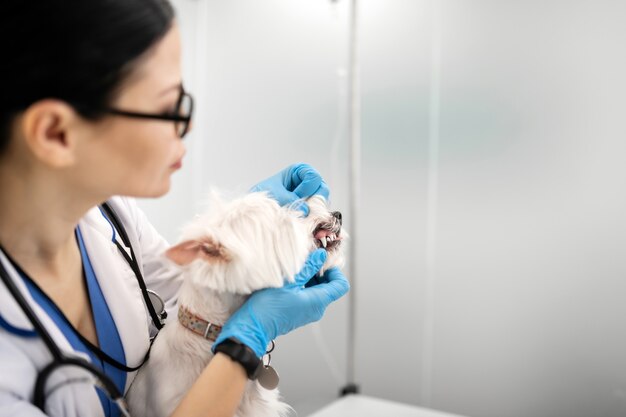Exploring the World of Veterinary Careers: Your Comprehensive Guide
In a world where pets are cherished members of the family and global wildlife conservation is more critical than ever, veterinary careers offer a rewarding blend of challenges and opportunities. Whether you're passionate about animal care, fascinated by medical science, or driven by a desire to make a difference, the veterinary field presents a diversity of roles that might just be the perfect fit for you. In this guide, we'll delve into the wide array of veterinary jobs available, the skills and education required, and how to navigate your entry and growth within this impactful career path.
🩺 Understanding the Veterinary Industry
Before diving into the specifics of various veterinary roles, it's essential to comprehend the broader industry landscape. The veterinary sector plays a pivotal role in public health, food safety, and the ecological vitality of ecosystems. Veterinarians work not only in clinics but also in laboratories, academic institutions, and the field, contributing to animal welfare and medical research.
A Snapshot of Veterinary Work Environments
Veterinary professionals can be found in diverse settings:
- Private Practices: Where veterinarians provide routine care, perform surgeries, and offer emergency services for pets and livestock.
- Research Laboratories: Conducting studies to improve animal and human medicine.
- Zoos and Aquariums: Offering specialized care to exotic and aquatic animals.
- Nonprofits and Advocacy Organizations: Working on wildlife conservation, animal rights, and welfare initiatives.
- Government Agencies: Ensuring public health and monitoring disease outbreaks among animal populations.
📚 Educational Pathways and Credentials
The journey to a veterinary career involves rigorous education and training. Aspiring veterinarians typically follow these steps:
Veterinary Degree and Licensing
- Bachelor's Degree: Begin with an undergraduate degree, ideally in a science-related field such as biology, animal science, or biochemistry.
- Doctor of Veterinary Medicine (DVM): Four years of veterinary school provide intense training in animal anatomy, physiology, diagnostics, and surgical practices.
- Licensing: In order to practice, a DVM must pass the North American Veterinary Licensing Examination (NAVLE).
Specializations and Advanced Certifications
Veterinarians may pursue further specialization through internships and residencies in areas like:
- Surgery
- Radiology
- Dermatology
- Internal Medicine
Tip: Continuous education is crucial for veterinarians, ensuring they remain current with medical advances and industry regulations.
🌟 Exploring Veterinary Career Options
The veterinary field offers more than just the traditional veterinarian role. Let's explore the variety of positions you can consider:
1. Clinical Veterinarian
Focus: Providing medical care to small or large animals in clinics. Skills Required: Diagnostic expertise, surgical skill, and communication.
2. Veterinary Technician
Tasks: Assisting veterinarians with diagnostic tests, anesthesia, and client education. Training: Typically requires an Associate's degree in veterinary technology.
3. Veterinary Pathologist
Role: Performing autopsies and biopsies to determine causes of disease and death. Education: Specialization during post-DVM training.
4. Wildlife Biologist or Veterinarian
Mission: Working with wildlife populations, conducting research, and aiding conservation efforts. Key Qualities: Excellent fieldwork skills and problem-solving abilities.
5. Veterinary Pharmacologist
Function: Research and develop medications for animals, working with pharmaceutical companies. Requirement: Strong background in biochemistry and pharmacology.
💡 Key Skills for Veterinary Professionals
Entering the veterinary field requires a blend of technical and soft skills:
- Compassion and Empathy: Essential for dealing with both animals and pet owners.
- Problem-solving: Critical thinking to diagnose and treat various conditions.
- Communication: Clear communication is important for explaining complex medical terms to clients and working within a team.
- Physical Stamina: Handling large animals and performing surgeries can be physically demanding.
🚀 Navigating Your Veterinary Career Path
Steps to Entering the Field
- Gain Relevant Experience: Volunteer or work at animal shelters, clinics, or farms.
- Education and Training: Follow the required educational pathways tailored to your chosen role.
- Networking: Join veterinary associations and attend industry conferences to connect with professionals.
Growth and Advancement Opportunities
- Continuing Education: Stay updated with courses or certifications.
- Specialization: Pursue specialized fields to increase marketability and expertise.
- Networking and Professional Development: Be active in the professional community to learn about opportunities.
🔍 Evaluating the Veterinary Job Market
The veterinary job market is continually evolving. Several factors influence job availability and demand:
- Pet Ownership Trends: Increasing pet ownership rates can lead to a higher demand for veterinarians.
- Technological Advancements: Innovations such as telemedicine expand opportunities for remote consultations.
- Public Health Concerns: Outbreaks of animal diseases underscore the importance of veterinary expertise in public health initiatives.
🗂️ Summary of Key Takeaways
Here's a quick summary of what to consider when exploring veterinary careers:
- 🩺 Diverse Roles: Veterinary fields include clinical practice, research, conservation, and more.
- 📚 Education is Key: A DVM is typically required for veterinarians, with options for specializations.
- 🌟 Skills Matter: Developing both technical and soft skills is crucial for success.
- 📈 Market Trends: Stay informed on industry changes and how they affect career opportunities.
- 🚀 Start Strategically: Gain experience, network, and continue learning to advance your career.
The world of veterinary medicine is full of dynamic opportunities for individuals passionate about animal health and welfare. Whether in a bustling urban clinic or deep in the wilderness, veterinarians and veterinary professionals make meaningful impacts every day. With the right combination of education, experience, and passion, a thriving career in veterinary medicine awaits those prepared to take the plunge.

Related Topics
- A Comprehensive Guide To Cleaning Jobs
- A Comprehensive Guide To Event Planner Jobs
- A Comprehensive Guide To Graphic Design Jobs
- A Comprehensive Guide To IT Jobs: Exploring Opportunities Within The Tech Space
- A Comprehensive Guide To Journalist Jobs
- A Comprehensive Guide To Kindergarten Teacher Jobs
- A Comprehensive Guide To Librarian Jobs: Opportunities, Requirements, And Potential Earnings
- A Comprehensive Guide To Navigating LinkedIn Jobs
- A Comprehensive Guide To Pharmacy Jobs: An Uncharted Path To a Promising Career
- A Comprehensive Guide To Photographer Jobs
